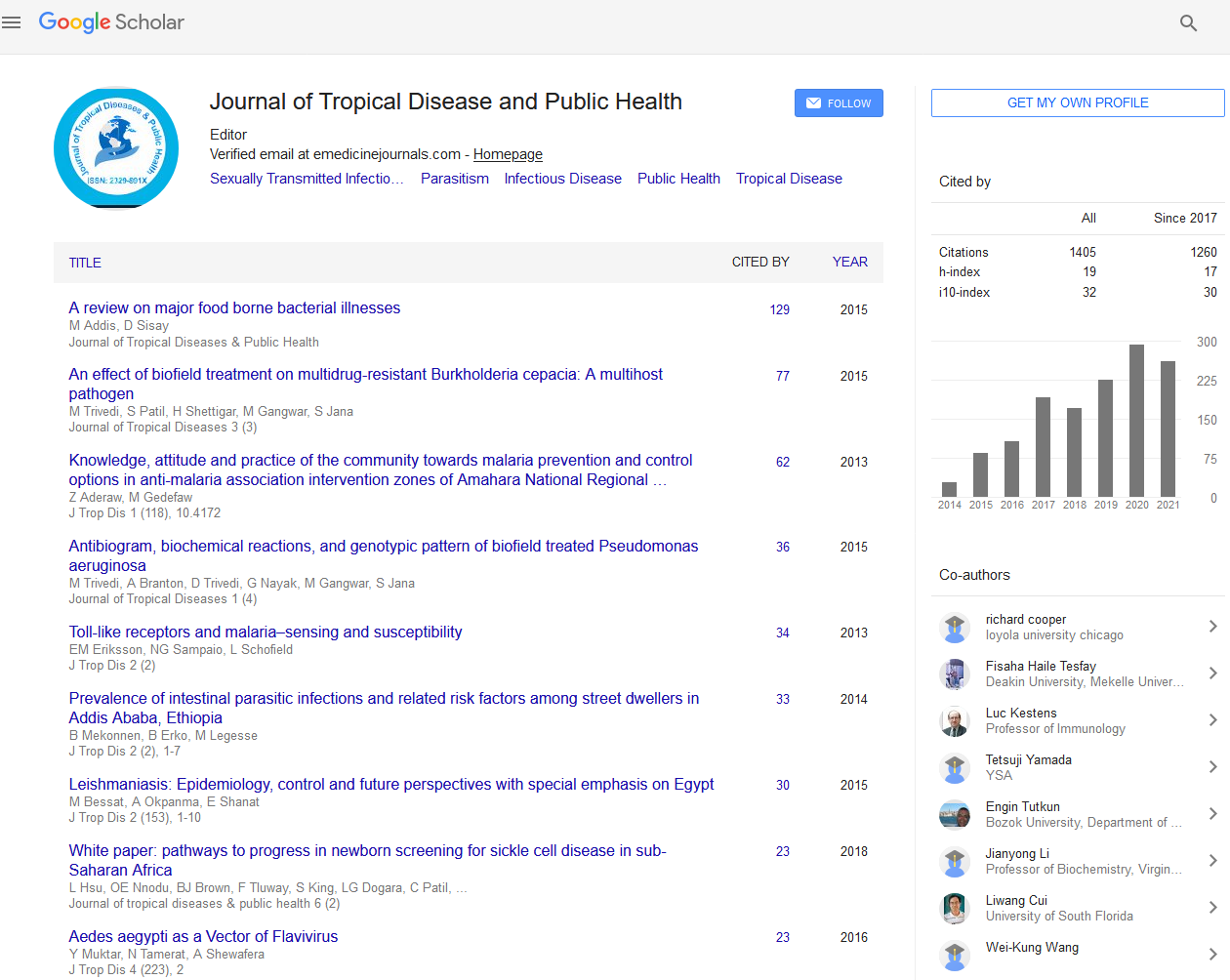Indexed In
- Open J Gate
- Academic Keys
- ResearchBible
- China National Knowledge Infrastructure (CNKI)
- Centre for Agriculture and Biosciences International (CABI)
- RefSeek
- Hamdard University
- EBSCO A-Z
- OCLC- WorldCat
- CABI full text
- Publons
- Geneva Foundation for Medical Education and Research
- Google Scholar
Useful Links
Share This Page
Journal Flyer

Open Access Journals
- Agri and Aquaculture
- Biochemistry
- Bioinformatics & Systems Biology
- Business & Management
- Chemistry
- Clinical Sciences
- Engineering
- Food & Nutrition
- General Science
- Genetics & Molecular Biology
- Immunology & Microbiology
- Medical Sciences
- Neuroscience & Psychology
- Nursing & Health Care
- Pharmaceutical Sciences
Abstract
Antimicrobial Activities of Extracts of Tobacco Leaf (Nicotiana tabacum) and Its Grounded Snuff (Utaba) on Candida albicans and Streptococcus pyogenes
Anumudu CK, Nwachukwu MI, Obasi CC, Nwachukwu IO and Ihenetu FC
This study was designed to investigate the antimicrobial activity of leaf and ground snuff extracts of Tobacco (Nicotiana tabacum) against Candida albicans and Streptococcus pyogenes using methanol and water as extracting solvents. The study employed the agar diffusion and tube dilution assays. Methanol extracts of tobacco leaf produced zones of inhibition of 13.0 mm against Streptococcus and 9.5 mm against Candida, whereas the water extracts produced inhibition zones of 10.0 mm for Streptococcus and no inhibitory activity on Candida. A minimum inhibitory concentration of 25 mg/ml was recorded by the methanol extracts of tobacco leaves against Candida and 100 mg/ml MIC against Streptococcus. The methanolic leaf extracts had both bactericidal and fungicidal effect on both Streptococcus and Candida at a concentration of 200 mg/ml. The zones of inhibition obtained from methanolic extracts of grounded snuff against Streptococcus was 10.5 mm and 15.0 mm against Candida whereas the water extracts produced inhibition zones of 7.5 mm for Streptococcus and 11.0 mm against Candida. A minimum inhibitory concentration of 100 mg/ml was recorded by both methanolic and water snuff extracts against Streptococcus. While the MIC obtained from the methanolic extract of ground snuff against Candida was 50 mg/ml. The water extracts of ground snuff showed no bactericidal or fungicidal activity. Whereas 200 mg/ml of the methanolic extract of ground snuff was microbiocidal against Streptococcus and Candida. In summary, the study showed that Grounded snuff is more of an antifungal agent than antibacterial while tobacco leaves have great antibacterial potential. This may justify the use of tobacco leaves and its ground snuff in the treatment of oral thrush caused by Candida albicans and strep throat caused by Streptococcus pyogenes.


